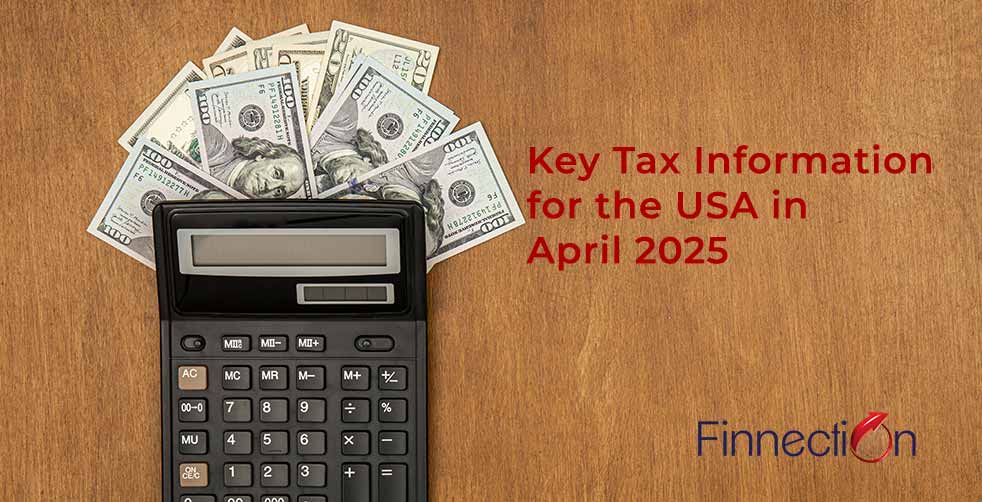April is a critical time for taxpayers in the United States, as it marks the deadline for filing federal and state income tax returns. Understanding the essentials for 2025 can help you stay organized, avoid penalties, and make the most of available credits and deductions. Here’s a straightforward guide to the most important tax information for April 2025.

The federal income tax filing deadline for most individuals is April 15, 2025. This applies to employees, retirees, self-employed individuals, independent contractors, and gig workers filing their 2024 tax returns. If April 15 falls on a weekend or holiday, the deadline typically shifts to the next business day, but as of now, expect to file by this date. Missing the deadline without an extension can lead to penalties, including a failure-to-file penalty of 5% of unpaid taxes per month, up to 25%. If you owe taxes, interest also accrues from April 15, so timely filing is crucial.
You can request an automatic extension to file until October 15, 2025, by submitting Form 4868 by April 15. However, an extension to file doesn’t extend the time to pay. You must estimate and pay any taxes owed by April 15 to avoid penalties and interest. Payments can be made through IRS Direct Pay, debit/credit cards, or the Electronic Federal Tax Payment System (EFTPS). If you can’t pay in full, the IRS offers payment plans, like short-term (up to 180 days) or long-term installment agreements, to manage balances.
Tax rates for 2024 income remain progressive, with federal brackets ranging from 10% to 37%, depending on your taxable income and filing status (single, married filing jointly, etc.). For example, a single filer earning up to $11,925 in taxable income falls in the 10% bracket, while income over $609,350 is taxed at 37%. Standard deductions are adjusted annually for inflation—expect around $14,600 for single filers and $29,200 for married couples filing jointly for 2024. Itemizing deductions (like mortgage interest or charitable contributions) may save more if expenses exceed the standard amount.
Credits and deductions can significantly reduce your tax bill. The Earned Income Tax Credit (EITC) benefits low- to moderate-income workers, with maximum credits for 2024 likely around $7,500 for families with three or more children. The Child Tax Credit offers up to $2,000 per qualifying child under 17, with $1,700 refundable. Energy-efficient home improvements, like solar panels, may qualify for the Residential Clean Energy Credit, covering up to 30% of costs. Always keep receipts and documentation to support claims.
Self-employed individuals and gig workers should note that quarterly estimated tax payments for 2025 are due on April 15, June 16, September 15, and January 15, 2026. These cover income and self-employment taxes (Social Security and Medicare). Paying 100% of last year’s tax liability or 90% of this year’s expected taxes avoids underpayment penalties. Use Form 1040-ES to calculate estimates.
Some regions, like Los Angeles County, affected by 2024 wildfires, have extended deadlines. For example, federal and California state returns may be due October 15, 2025, for impacted taxpayers, with no penalties for late filing or payment within this period. Check IRS disaster relief announcements for eligibility.
The USA-Canada Tax Treaty helps Americans working in Canada avoid double taxation. If you earn Canadian income, you may claim a foreign tax credit on your U.S. return to offset taxes paid to Canada. File Form 1116 accurately to claim this credit.
Finally, file electronically for faster processing—refunds typically arrive within 21 days via direct deposit. Free filing options like IRS Free File are available for those with adjusted gross income under roughly $79,000. Stay proactive, double-check your forms, and consult a tax professional if your situation is complex, like owning a business or investing in cryptocurrency.
By planning ahead for April 15, 2025, you can navigate tax season with confidence, maximize savings, and avoid unnecessary stress.
If you have any questions regarding USA Tax, feel free to contact finnection via email at info@finnection.ca or call us at (647) 795-5462
Disclaimer: Above information is subject to change and represent the views of the author. It is shared for educational purposes only. Readers are advised to use their own judgement and seek specific professional advice before making any decision. Finnection Inc. is not liable for any actions taken by reader based on the information shared in this article. You may consult with us before using this information for any purpose.
